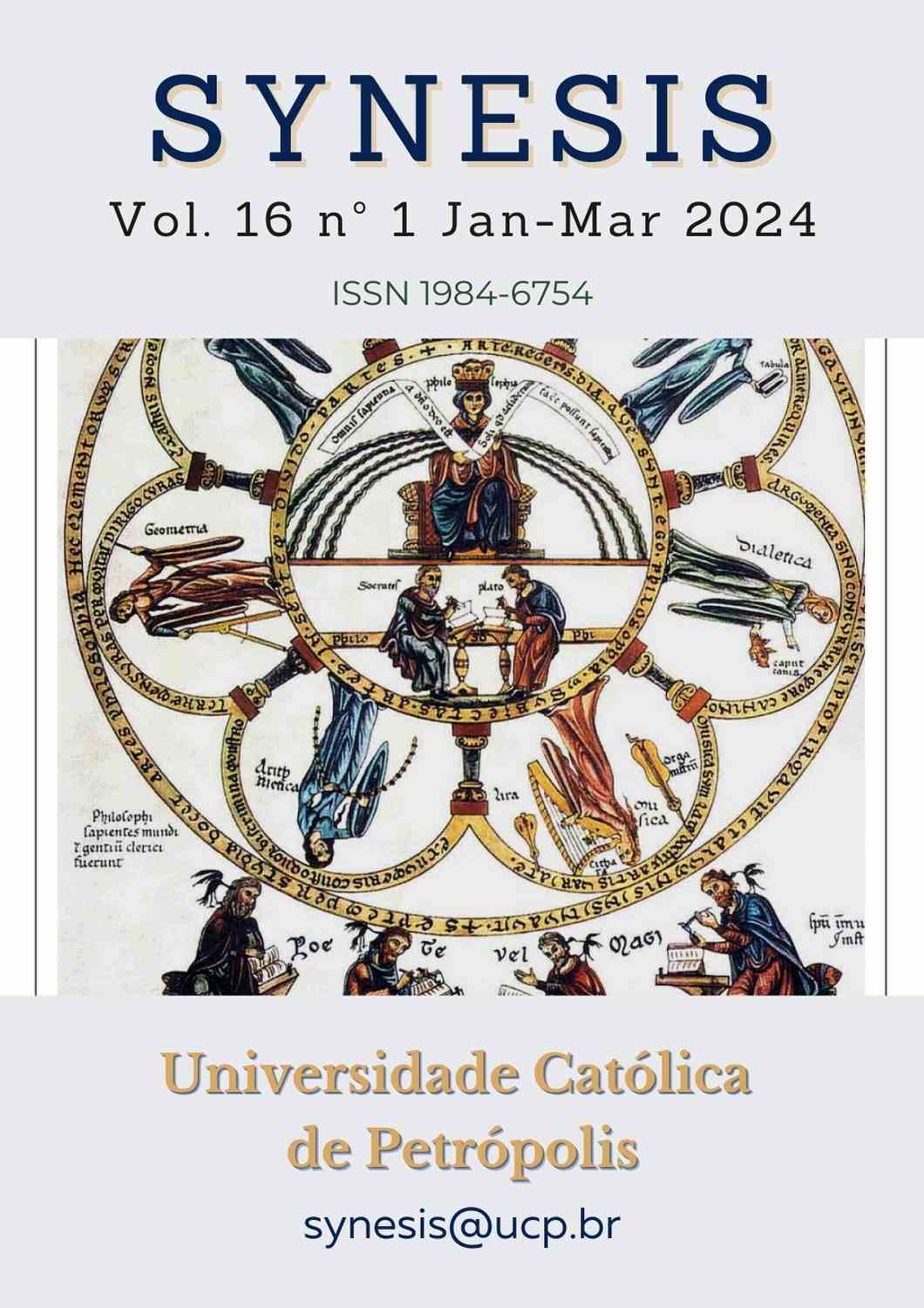Abstract
The contemporary world faces many challenges, such as environmental crises, social injustice, etc. New philosophical concepts and postulates are required to solve these issues. The article aims to describe the challenges, reflection, and practical application of philosophical concepts and postulates in the innovative society. The educational process focuses on philosophical concepts and postulates. The research is on grounds the analysis, synthesis, and generalization of scientific literature. The paper defines philosophical concepts and postulates and gives an example of philosophical doctrines. The authors outline the main challenges of philosophical concepts and postulates in the world today: ecological imbalance between society and the environment; Worsening poverty of the vast majority of humanity; cultural imbalance. The article considers the practical application of philosophical concepts and postulates in the contemporary world. Philosophical concepts and tenets are fundamentally necessary because they contribute to the integration of scientific knowledge. They form the most general patterns of development of society and nature. Also, philosophical concepts and postulates are used in all areas of modern society. This, in turn, makes it possible to see the general trend of global issues, the dynamics of their interaction, and interdependence.
References
Andrienko, O. (2020). Philosophical reflection as a mechanism for solving ideological and psychological problems of a democratic society. Available at: https://ird.npu.edu.ua/files/andrienko.pdf
Andrushchenko, V. P., Mozgova, N. G. (2020). Scientific journal of the National Pedagogical University named after M. P. Drahomanov. Series 7. Religious Studies. Culturology. Philosophy. Kyiv: M. P. Drahomanov NPU, 42, 294.
Berehova, G. D., Gerasimova, G. D., Len, T. V. (2014). Materials of the II All-Ukrainian scientific and practical conference "Philosophical problems of modernity": articles and theses. Kherson: RVV "Kolos", 263 p.
Blihar, V. S., Tsymbalyuk, M. M., Hayvoroniuk, N. V., Levkulevich,V. V., Shandra, B. B. (2021). Philosophy: A Textbook. Uzhhorod: Publishing House of UzhNU "Hoverla", 440 p.
Boyko, A. I., Gudyma, I. P., Kuleshov, O. V., Drozdova, T. O., Datsenko, V. S. (2017). Modern philosophy: main sections, concepts, problems, ideas: study guide. Cherkasy: FOP Hordiienko E. I., 154 p.
Earle, W. (2014). Philosophers. Philosophical Forum, 45(1), 89-111. Available at: https://doi.org/10.1111/phil.12028
Friedland, J. (2017). Philosophy Is Not a Science. The New York Times, 5. Available at: www.opinionator.blogs.nytimes.com/2012/04/05/philosophy-is-not-a-science/?_r=1
Hadfield, A. (2017). Sterne Amongst the Philosophers. Textual Practice, 31(2), 225-232. Available at: https://doi.org/10.1080/0950236X.2016.1228843
Hayden, G. (2016). What is Philosophy? A Guide to The World of Thought and Logic. Quid,
Kopievska, O. R. (2013). Reflection as a method of scientific understanding of cultural transformations. The phenomenon of globalization of culture, pp. 148-152.
Kozlovets, M. A., Gorokhova, L. V., Chaplinska, O. V. (2022). Actual problems of modern philosophy and science: challenges of the present: Collection of scientific papers, Zhytomyr: Ivan Franko State University Publishing Center, 192 p.
Loncar, S. (2016). Why Listen to Philosophers? A Constructive Critique of Disciplinary Philosophy. Metaphilosophy, 47(1), 3-25. Available at: https://doi.org/10.1111/meta.12166
Lytvyn, N. L., Poperechna, G. A. (2022). Value orientations in the modern world: theoretical analysis and practical experience: a collection of theses of the 4th International Scientific and Practical Conference. Ternopil: Vector, 454 p.
Pavelkiv, R. V. (2019). Reflection as a mechanism of formation of individual consciousness and personality activity. Philosophy, 84-98.
Petrushenko, R. V. (2016). The role of philosophy in the life of modern society: unanswered questions. Philosophical Sciences, 1, 97-102.
Ryabinova, O. V., Yurchenko, L. I. (2021). Philosophy: a textbook for students and cadets of higher education institutions of III-IV levels of accreditation. Kharkiv: I. S. Ivanchenko Publishing House, 286 p.
Ryazanova, G. (2021). Philosophical Concepts Aand Economic Theory of Organization of the Modern Era. Social and Behavioural Sciences, p. 740-746.
Ryzhak, L. (2009). Philosophy as a reflection of the spirit: a study guide. Lviv: Ivan Franko LNU Publishing Center, 640 p.
Tararoev, Y. V., Dolska, O. O., Dyshkant, T. M. (2023). Philosophical problems of modern scientific knowledge: a textbook for master's students of all specialties and forms of education. Kharkiv: I. S. Ivanchenko Publisher, 350 p.
Tillman, M. (2016). How Philosophers Appeal to Priority to Effect Revolution. Metaphilosophy, 47(2), 304-322. Available at: https://doi.org/10.1111/meta.12181

This work is licensed under a Creative Commons Attribution-NonCommercial-NoDerivatives 4.0 International License.
Copyright (c) 2023 Synesis (ISSN 1984-6754)

